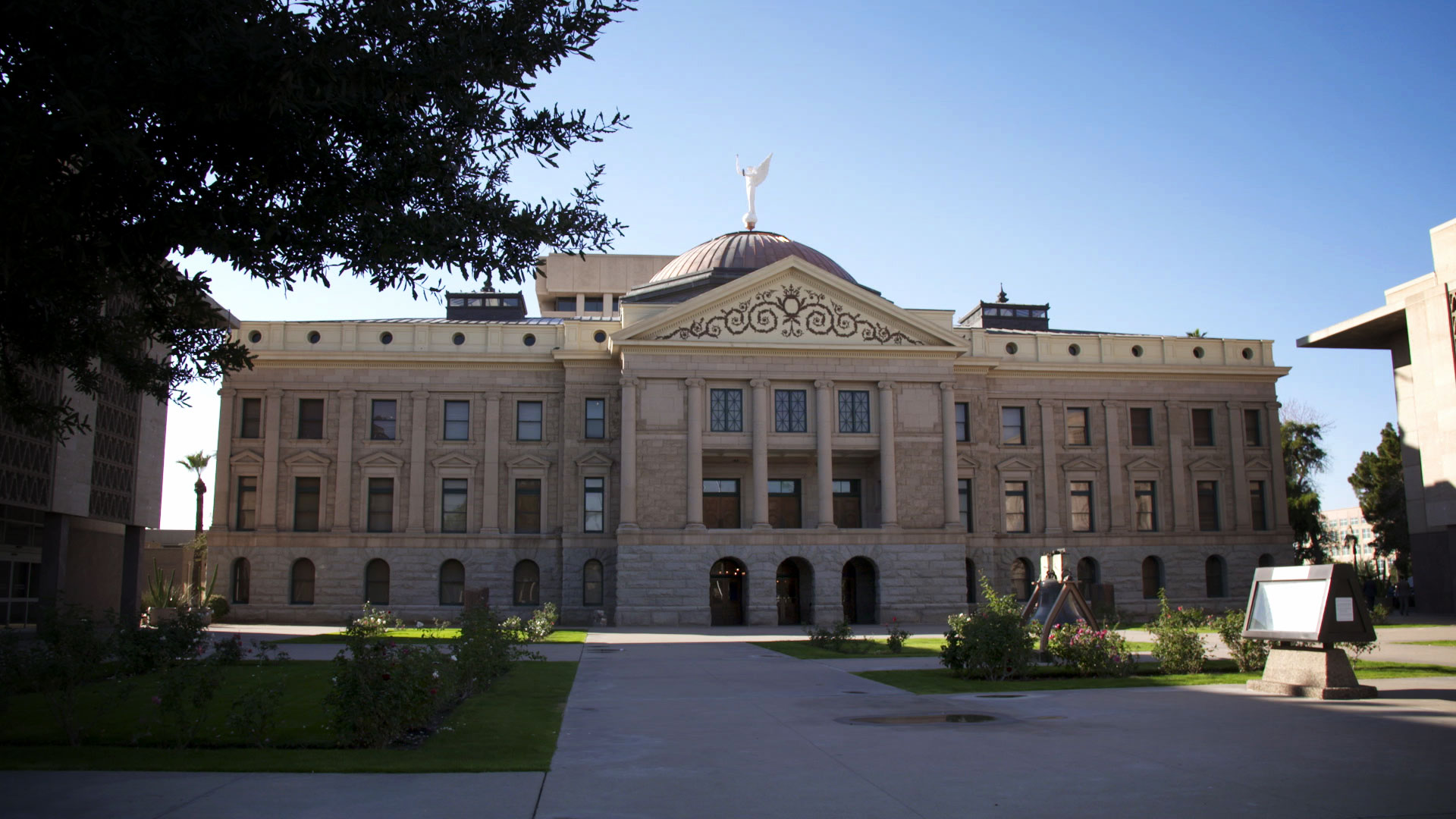 The Arizona State Legislature in Phoenix.
The Arizona State Legislature in Phoenix.
Arizona for Abortion Access is suing members of Arizona’s Legislative Council after adopting what it calls anti-abortion language to describe the group's abortion ballot initiative. The measure aims to expand abortion access to the point of viability, from the current limit of 15 weeks.
“We filed this lawsuit today to hold politicians to account and ensure that Arizona voters receive an impartial summary of our measure in the publicity pamphlet, instead of one that uses a politically charged phrase embraced by our opponent,” campaign manager Cheryl Bruce said.
The organization is asking for a preliminary and permanent injunction to stop the Secretary of State from printing the council’s analysis of the initiative until the language is changed.
According to A.R.S. § 19-124(C), the legislative council has to prepare “an impartial analysis of the provisions of each ballot proposal of a measure or proposed amendment.” However, on a party-line vote of 8 to 6, the council approved the use of “unborn human being”–a phrase used by anti-abortion groups to describe a fetus–for this election’s publicity pamphlet. That handout is used to explain what the current state law is and what is being proposed.
“Current state law prohibits a physician from performing an abortion if the probable gestational age of the unborn human being is more than 15 weeks, except when a pregnant woman’s medical condition necessitates an immediate abortion,” the draft summary reads. In its current draft, the description also uses the term fetus later on.
“In the reproductive rights context, the phrase unborn human being is tinged with partisan coloring,” Austin Yost, an attorney for Arizona for Abortion Access said on Monday to the council. Yost urged lawmakers to change the phrase to the medical term fetus but was quickly turned down by Republican lawmakers such as Speaker Ben Toma.
“Using the word fetus is partial as well, for those of us on the pro-life side,” Toma said. “So the fact that the description actually uses both phrases in different sections, to me, seems very fair and balanced.”
Tucson Democratic Representative Stephanie Stahl-Hamilton attempted to call for an amendment to change the language to the medical term fetus but was denied. Toma asserted that it was important to use clear language to the public.
“I’m not a doctor, Representative Hamilton,” Toma said. “I don’t care what the medically accurate term is…if you would have said, I had an abortion versus I had a miscarriage, those mean two different things to the average person when you're talking to them. And so what we're talking about is trying to be clear about what this initiative does.”
Arizona for Abortion Access–the organization leading the campaign to protect abortion access in Arizona’s constitution–says this is not the first time that anti-abortion lawmakers have threatened their initiative.
“We've seen these politicians and opposition leaders make repeated baseless accusations about what this measure does to fearmonger and scare voters,” Bruce said. “The Arizona for Abortion Access campaign seeks to take these decisions out of those politicians' hands once and for all. This fall, when voters seek information about what is on their ballots, that information, by law, should be accurate and not tinged with inflammatory political rhetoric.”

By submitting your comments, you hereby give AZPM the right to post your comments and potentially use them in any other form of media operated by this institution.